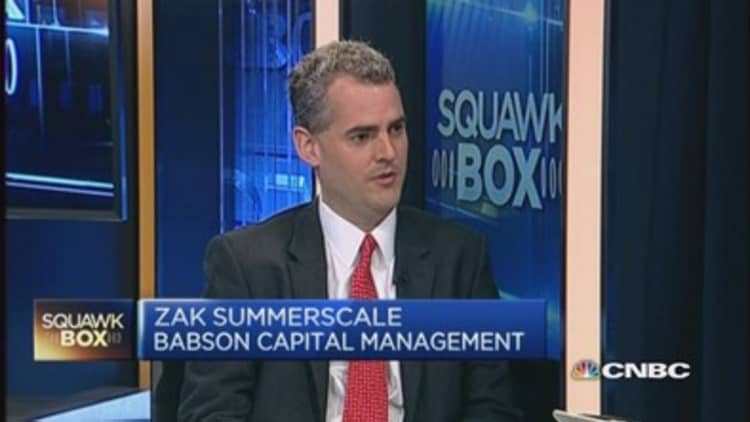Greece's debt drama is getting louder and more dire as negotiators lose patience, but some market players are shrugging off a potential default as little more than a hiccup in the European market rally.
"Medium term, there is a very clear potential that Greece should go out [of the euro zone]," Michael Strobaek, global chief investment officer at Credit Suisse, said last week, citing the country's "notoriously ineffective" reform efforts.
But while a Greek exit from the euro zone, dubbed a Grexit, might be tragic and chaotic for Greece, financial markets might not react much.
Read More Crunch time: Greece risks rising once again
"That's not a black swan thing. It's a grey swan, I guess. I don't think the markets are going to riot," Stobaek said. "Even if (interest) rates were to go up because Greece went out, it's not a disaster," for other heavily indebted countries such as Spain and Italy because they will still have access to relatively low financing rates, he noted.
Optimistic view
Credit Suisse is positive on European equity markets, pointing to support from the European Central Bank's (ECB) quantitative easing program, low interest rates and low oil prices.
The Swiss bank isn't alone. A record net 60 percent of fund managers were overweight on European equities in March, up from 55 percent in February and 20 percent in January, according to the Bank of America-Merrill Lynch fund manager survey.
All that optimism has sent the Eurostoxx 50 index up around 19 percent so far this year.
Just a hiccup?
The European bond outlook may not be affected much either.
"We don't think what happens with Greece changes anything to the yield our investors are getting today," Zak Summerscale, chief investment officer for European high yield at Babson Capital Management, told CNBC Tuesday. He sees "no great risk" in the European high-yield segment, noting that low interest rates are spurring demand from pension funds and insurers.
Read More Why the drachma can't save Greece: Goldman
Others also don't see much more than a hiccup. While Goldman Sachs has shifted to a neutral rating on European stocks on a three-month view, citing uncertainty over Greece, it's overweight on a 12-month outlook.
Key factors
Part of the relatively sanguine market view of a potential Greek default may be because the country's largest creditors are organizations, such as the ECB and the International Monetary Fund (IMF), with only around 68 billion euros of its around 320 billion euro debt load trading in the market.

The country's economy is also relatively small. Based on 2013 data, Greece's gross domestic product (GDP) made up only around 1.35 percent of the European Union total.
Less bargaining power?
If a Grexit were to get a shrug from markets, though, that could erode any leverage Greece might have had as it tries to negotiate a debt haircut.
Time is tight for the country, which is expected to run out of money by April 20, according to a Reuters report. It has loan repayments to make to the IMF and a large wages and pension bill coming up which will put further pressure on its depleted finances. On Tuesday, Greece's creditors rejected Athens' package of reforms as lacking any specific implementation plans.
Negotiators have become increasingly impatient with Greece as it resists implementing reforms, a development that could also push the country toward the exit.
"There is an ideological difficulty that exists in the Greek government to understand that the way for Greece to recover the confidence of the markets is in fact for to go on with structural reforms that Greece has committed to," Jose Manuel Barroso, the former president of the European Commission, told investors in Hong Kong last week, remarks that appear to match the exasperated tone from negotiators.
—By CNBC.Com's Leslie Shaffer; Follow her on Twitter @LeslieShaffer1


